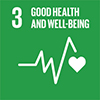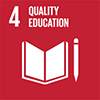A framework to guide healthcare professionals in online communication has been proposed in a new study from RCSI University of Medicine and Health Sciences.
The guidelines, published in Medical Education Online, will assist healthcare professionals in effectively using online communications tools and channels while adhering to professional codes of conduct.
In recent years, the use of social media and social networking sites has increased amongst healthcare professionals. These digital channels are used commonly in healthcare for a variety of reasons, including: to access and share information quickly, to network with peers, to access research or educational and training information or to communicate with the public.
Although the use of digital channels has significantly expanded in this area, education and training on maintaining professional standards and codes of conduct is not readily available.
The proliferation of social media use in the healthcare field without guidelines on its use, puts healthcare professionals at risk and impacts on privacy, confidentiality and codes of conduct. Boundaries between professional and personal lives can become blurred online and lapses in behaviour can occur.
This research aims to address this gap by providing a framework for healthcare professionals to guide them in their online interactions.
The study recommends a unified mission-based Medical Education e-Professionalism (MEeP) Framework which focuses on the core principles of professionalism to guide healthcare-professionals when engaging online.
At the core of the framework is the ‘Mission’ which is identified in the study as a commitment by the medical profession to society through a social contract to deliver healthcare services with appropriate professional values, behaviours and identity. The MEeP framework offers a structured approach to ensure that healthcare professionals can achieve this mission in their communications in a digital environment that can be impulsive, intercultural and powerful.
In addition, the MEeP framework provides a list of competencies that can be used by academics to inform educational curricula and by learners for their own self-assessment and reflection. The study recommends formal training and evaluation of the medical trainees and professionals to prepare them for their future digitally enhanced medical practice.
The Framework offers a structured approach to online communication that can be adopted by medical institutions and healthcare authorities and will protect healthcare professionals and their patients in the digital era.
The study was carried out by RCSI academics in Bahrain and Dublin in conjunction with collaborators in Malaysia and the UAE.
RCSI is committed to achieving a better and more sustainable future through the UN Sustainable Development Goals.


